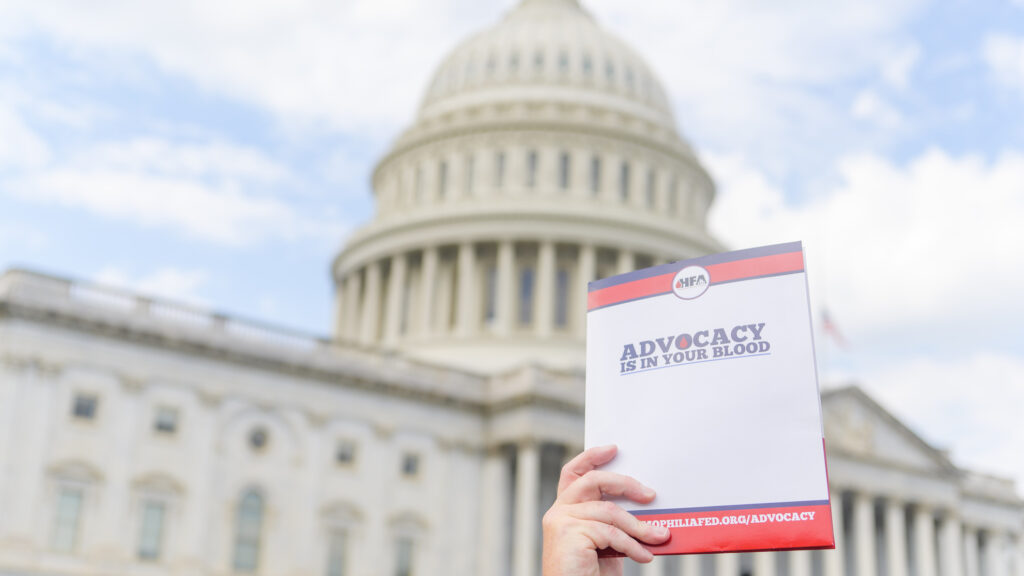On Jan. 20, HFA posted a report about a highly concerning insurance problem unfolding in Tennessee. Blue Cross Blue Shield Tennessee (BCBST) has implemented 2023 formularies for individual, small group, and large group health plans in the state that remove 17+ bleeding disorders treatments from coverage. These exclusions threaten the health of potentially hundreds of Tennesseans who live with hemophilia and other bleeding disorders.
Tennessee community members who have been stable on their prescribed treatment(s) for years may now be forced to use other treatment regimens, potentially with different routes of administration or mechanisms of action. And some people – those living with certain rare bleeding disorders, and those with inhibitors – are finding that the new formularies exclude ALL available treatments for their conditions. These vulnerable individuals face the prospect of no coverage for the medically-necessary treatments they rely on to prevent or treat painful and life- and limb-threatening bleeding.
HFA together with NHF wrote to BCBST on in December and again in January, calling on BCBST to reverse this harmful and unjustifiable decision. We copied federal and state insurance regulators on our letters. To date, BCBST has refused to restore formulary coverage, or to meet with patient advocates, and regulators have declined to intervene. HFA and NHF are consulting with external partners and are maintaining close contact with the Tennessee Hemophilia and Bleeding Disorders Foundation (monitoring the experience of patients in Tennessee as they submit exceptions requests to BCBST to remain on their current therapies).
Quick Hits:
- On Friday, January 27th, the U.S. Food and Drug Administration announced proposed changes to national blood and plasma donation policies. The draft FDA guidance, if finalized, would eliminate time-based donation deferrals for men who have sex with men. Instead, all donors would be asked to answer individual risk-based questions, designed to reduce the risk of transfusion-transmitted HIV. FDA says this approach aligns with policies in countries such as Canada and the United Kingdom, and is furthermore supported by national and international blood safety data. FDA is opening a 60-day comment period on the proposed guidance.
- The U.S. Centers for Medicare and Medicaid Services (CMS) released guidance laying out timelines for the Medicaid unwinding process (“unwinding” refers to the re-start of Medicaid eligibility redeterminations, which have been paused since the start of the COVID-19 pandemic). States may initiate eligibility reviews as soon as February 2023; April 1st is the earliest date on which states may terminate enrollees’ Medicaid coverage. Follow HFA social media for ongoing messaging about the Medicaid unwinding and suggested actions for community members with Medicaid coverage.
- Separately, CMS announced that the federal ACA Marketplaces will offer a 16-month special enrollment period for those who lose Medicaid coverage during the Medicaid unwinding. CMS’s goal is to prevent coverage gaps and ease the transition from Medicaid or CHIP to Marketplace plans for those affected.
- HFA, together with NHF, submitted comments on the proposed federal rules for 2024 health plans and, separately, in response to a CMS request for information on the scope of “essential health benefits” required under the Affordable Care Act. In both letters, we called on regulators to strengthen and enforce coverage standards so as to make good on the ACA’s promise of affordable, quality insurance for people with bleeding disorders and other pre-existing conditions.
- CMS reported that a record 16.3 million people had signed up for individual health insurance plans on the ACA Marketplaces by the close of the federal open enrollment period on January 15, 2023. Enrollment increased by 13% nationwide but spiked the most in the dozen states that have not expanded Medicaid under the ACA (33 percent in Texas and 27 percent in Tennessee). More than 20% of all Marketplace enrollees live in Florida (even though the state is only 7% of the national population).
- CMS issued guidance that creates an easier path to specialty care for Medicaid and Children’s Health Insurance Program (CHIP) beneficiaries. Under the new policy, state Medicaid and CHIP programs will be able to pay specialists directly when a patient’s primary health care provider asks for advice. The agencies note that this move “links” routine care with specialty care, allowing more people to benefit from practitioners with specialized knowledge.




